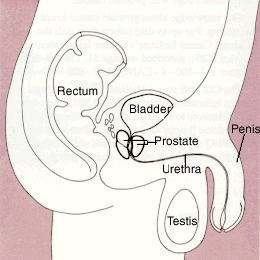How do I know which BPH treatment is right for me?
As you do your research, you learn about increasing numbers of recommended treatment options for BPH. These options range from lifestyle changes, drugs, laser, devices, surgery and non-surgical embolisation of the prostate. They can't all be the best option for you and you will get widely differing opinions depending on who you speak to. Increasingly the onus is on the patient to take some responsibility in collaboration with the medical experts in their final choice of care.
The National Institute for Health and Care Excellence (NICE) have recently accredited and provided guidance for prostate artery embolisation for lower urinary tract symptoms caused by benign prostatic hyperplasia. NICE have issued the following recommendations for this accredited procedure:
1.1 Current evidence on the safety and efficacy of prostate artery embolisation for benign prostatic hyperplasia is adequate to support the use of this procedure provided that standard arrangements are in place for clinical governance, consent and audit.
1.2 Patient selection should be done by a urologist and an interventional radiologist.
1.3 This technically demanding procedure should only be done by an interventional radiologist with specific training and expertise in prostatic artery embolisation.
Processes to safeguard the treatment option review
Consultant Interventional Radiologist, Dr Nigel Hacking insists that all patients who are interested in or are put forward for a prostate artery embolisation (PAE) come with both a GP and a referral from a Consultant Urological Surgeon such as Mr Leye Ajayi. This need not be a complicated process and Dr Hacking will organise these arrangements with the patient. Working in professional partnership, neither the GP or the urologist have any vested interest in how the patient is treated other than the patient's own interests - and that is precisely how it should be. If the GP feels that PAE or any other treatment might be appropriate he will forward the patient to the urologist, if the urologist agrees that PAE is an option then Dr Hacking's opinion is then sought.
As NICE have reported, "This [PAE] procedure works well for lower urinary tract symptoms caused by benign prostatic hyperplasia, and there are no serious concerns about its safety." In their section 'Information for the Public', they go onto say, "If you’ve been offered this procedure, your healthcare professionals should discuss with you what is involved, and tell you about the risks and benefits. They should talk with you about your options, and listen carefully to your views and concerns. Your family can be involved too, if you wish. All of this should happen before you agree (consent) to have the procedure. You should also be told how to find more information about the procedure."
If you would like further information on the procedure or would like to know if this treatment might be an option for you, and wish to speak with Dr Hacking, please click here.


